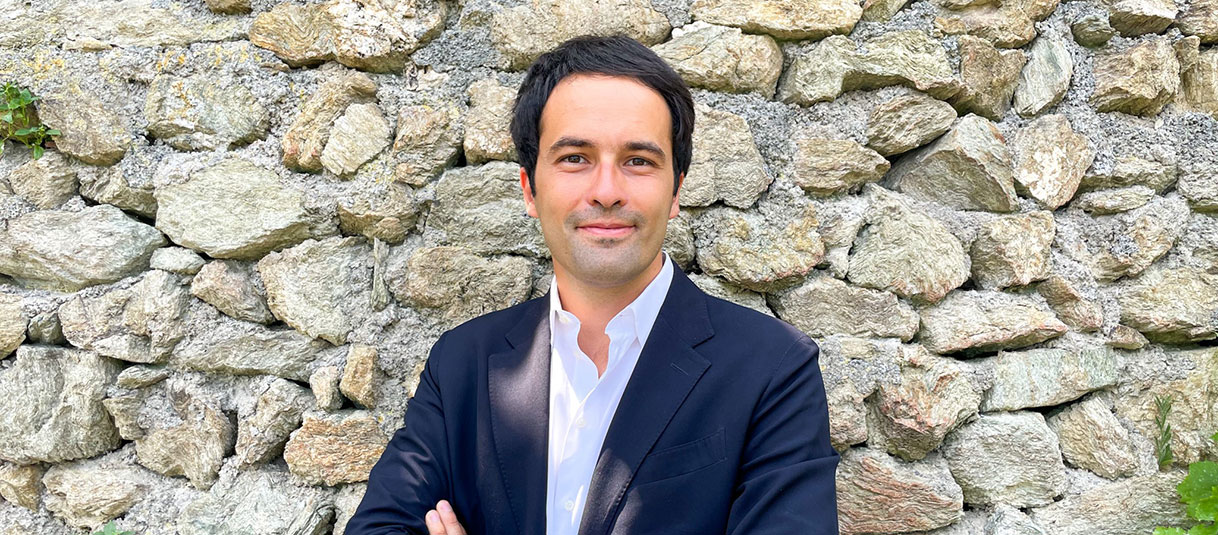Faculty Spotlight: Alessandro Rotta Loria
Alessandro Rotta Loria
Questions and Answers
Q1, Where were you born and where did you study (undergrad, grad, post-doc)
I was born in Turin, Italy, which you may especially know for FIAT, Juventus, Lavazza coffee, and other quite unique goods produced around such cities, such as Nutella, truffles, and vines. However, I spent most of my childhood in Ivrea, known for its carnival and battle of the oranges. For my university studies, I moved back to Turin, where in 2011 and 2013 I obtained my B.Sc. and M.Sc. degrees in Architectural Engineering from the Politecnico di Torino, respectively. After my university studies, I moved to Lausanne, Switzerland, where I received a Ph.D. in Mechanics from EPFL in 2017.
Q2, How long have you been at NU & briefly describe your research program?
I joined Northwestern in 2019. Since then, I have had the pleasure to launch the Mechanics and Energy Lab (MEL) – a research initiative developing theoretical and experimental research centered on the subsurface: a key dimension for the future of humankind on terrestrial and extraterrestrial planets, which can provide valuable space and resources for humans to thrive. At MEL, we aim to understand, analyze, and predict the impacts of energy transfers on the mechanics of geological and granular materials: from soils to beads and beyond. Encompassing constitutive modeling, experimental testing, and numerical simulations, our investigations address temporal problems lasting from seconds to centuries and spatial problems ranging from the size of soil particles to cities. Applications of our fundamental research are addressing some of the most urgent issues in subsurface energy production and storage, underground construction, and environmental conservation.
Q3, What courses do you teach?
I teach several courses focusing on the mechanics of geological materials and structures. These include Earth Surface Engineering, Soil Mechanics, Foundation Engineering, and Energy Geostructures. In a nutshell, these courses elucidate how geological materials respond to loading, interact with civil infrastructure, and enable the production and storage of renewable energy.
Q4, Did you always know you would become a professor? What attracted you to an academic career?
During my childhood, I spent most of my time building stuff – now that I think about it, with soil and water. I originally wanted to become an architect and hence I went for an architectural engineering degree. Soon after the start of my studies, multiple outstanding professors instilled in me a passion for the science of how materials deform and potentially fail: mechanics. I got particularly fascinated by problems in the broad field of mechanics for two main reasons: on the one hand, because of the rigor associated with their mathematical modeling; on the other hand, because I was challenged by the complexity of such problems. Cognizant and impacted by the power of education, and fascinated by the beauty and relevance of research, I quickly changed my original plans and I decided to aim for an academic career to positively shape the education of future generations of engineers and solve multidisciplinary scientific problems related to geological materials.
Q5, What is the most challenging part of your job?
I work on problems for which I initially have no solution – something that can be daunting and frustrating by definition but personally excites me. Therefore, the good news is that I consider this challenging part of my job as the nicest part of my job and a continuous opportunity to learn – through my intuitions, failures, and the work of other exceptional people around me.
Q6, What do you consider your most significant research finding or accomplishment thus far?
I think my most significant research accomplishment so far has been the writing and completion of a book together with Professor Lyesse Laloui, titled “Analysis and Design of Energy Geostructures.” I think I won’t write new books for a while, but I can say that I would definitely like to write others in the future. Writing a book represents a tremendously enriching experience where creativity and critical thinking can be expressed at their best and knowledge can be disentangled at its fullest.
Q7, Is there someone or something that has inspired you?
I guess I have already answered this question
Q8, What do you do for fun when you are not working?
I love all kinds of sports and I particularly like to practice climbing and play beach volleyball and soccer. Whenever possible, I enjoy going for long bike rides and exploring cities and nature. I also really like to visit art exhibitions. And I love to spend time with family and friends.
Q9, How do you explain what you do and why it is important to someone who isn’t a scientist or engineer?
I try to understand how to manipulate soils, rocks, concrete, and systems thereof to build the infrastructure of tomorrow on Earth and beyond — one that not only can provide space for us to live, but also protect us against extreme weather, and produce and store the energy required for our activities. This work is important because it is at the center of climate action, environmental conservation, and the development of sustainable communities. In short, it underpins the progress of human civilization in terrestrial and extraterrestrial environments.
Q10, Is there a question we should have asked or anything you would like to add?
Chicago’s style pizza is not a pizza but a pie with tomato sauce, which I find great.

